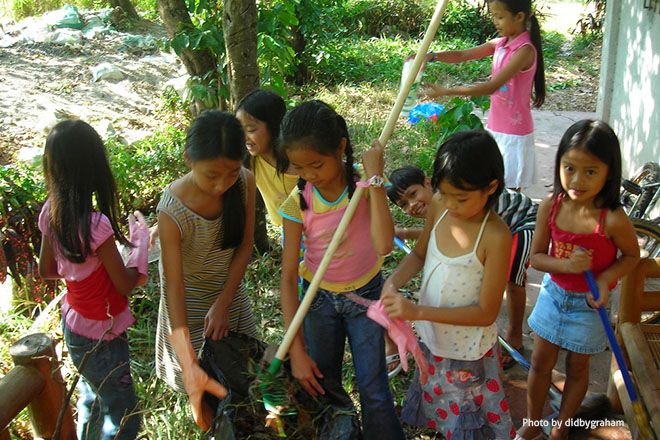The Philippines thank the world for helping in the aftermath of typhoon Haiyan, a breakthrough in stem cell research and women are obliged by law in the United Arab Emirates to breastfeed. Read all about it in this Wormfood.
Global News: Thank you from the Philippines
-
The Philippines launched a global campaign expressing its gratitude to the world, having received support following the devastating effects of typhoon Haiyan in November 2013.
Energy & Environment: UK´s tidal power plan

-
The UK is planning to build the world’s largest power-generating lagoon. Power will be generated as the incoming and outgoing tides – the daily equivalent of 100,000 Olympic swimming pools worth of water – pass through turbines. It could meet 10% of UK's power needs, if they can convince the government to provide subsidies of £156 per MWh.
-
This week's decision to dump dredged sand and silt in Great Barrier Reef waters has prompted warnings that the reef is one step closer to a spot on Unesco´s list of World Heritage in Danger.
Business & Economy: Industry responds to Climate Change

-
A growing view is emerging among American business leaders and mainstream economists who see global warming as a force that contributes to lower gross domestic products, higher food and commodity costs, broken supply chains and increased financial risk. Their position is at striking odds with the longstanding argument, advanced by the coal industry and others, that policies to curb carbon emissions are more economically harmful than the impact of climate change.
-
Caribbean islands are promised $1 billion in loans to switch from diesel to renewables. The commitments to put up cash and devise projects are expected to help countries to work together to strike better deals with technology companies.
Science, Tech & Design: Breakthrough in stem cell research

-
A new study shows that shocking blood cells with acid could trigger the transformation into stem cells - this time termed STAP (stimulus-triggered acquisition of pluripotency) cells. "If this works in people as well as it does in mice, it looks faster, cheaper and possibly safer than other cell reprogramming technologies - personalized reprogrammed cell therapies may now be viable."
-
Charlie Price from the social enterprise Aquaponics UK, explores the role aquaponics can play in the future of our collective food supply in this TEDxTalk.
-
Chinese researchers have used genome sequencing to identify about 1,300 different microbial species in smog that hit Beijing in January 2013. Reassuringly, most of the microbes they found are benign — but a few are responsible for allergies and respiratory disease in humans. And on days with heavier pollution, the proportion of DNA from these allergens and pathogens increased, suggesting that they might present an additional health threat to vulnerable groups, such as older people or those with weakened immune systems.
Urban Environment: Nobel prize for legalizing marijuana?

-
Uruguay’s President José “Pepe” Mujica has been nominated for the Nobel Peace Prize for the second year in a row — for legalizing marijuana. Mujica argued that legalization, with government regulation, was the only way to end the criminal activities around the drug in Uruguay.
-
As the world becomes more urbanized, researchers and city are recognizing the importance of providing urban habitat that can support biodiversity. “It’s not enough for cities to plant a million trees, preach the gospel of backyard gardens, or build green roofs and smart streets. The trees, shrubs, and flowers in that ostensibly green infrastructure also need to benefit birds, butterflies, and other animals. They need to provide habitat for breeding, shelter, and food. Where possible, the habitat needs to be arranged in corridors where wildlife can safely travel.”
-
34% of women say men are justified in hitting wives if they argue back according to a Pakistan survey. The Pakistan Demographic and Health Survey (PDHS) recently issued a comprehensive report in which, among various other questions, respondents were asked to choose reasons for which it is justified for a husband to hit his wife.
Unexpected and Intriguing: Breastfeeding mandatory by law

-
The United Arab Emirates has passed a clause, part of their new Child Rights Law, requiring new moms to breastfeed their babies for two full years. Now, men can sue their wives if they don't breastfeed.
-
Taliban militants abducted a military dog from an American-led unit in Afghanistan. Militants uploaded a video clip of the frightened-looking dog to a jihadist website.
This bi-weekly digest is assembled from items sent to us by Except members. Have questions, comments, or news items to suggest? E-mail merel.segers@except.nl. Read past Wormfood global news reports here.
Feb. 11, 2014

